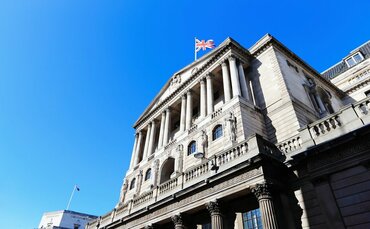It was a tight split decision by the Bank, with five members of the Monetary Policy Committee voting to maintain the Bank Rate at 5.25%, while four members preferred to increase rates by 25bps to 5.5%.
Investors had widely predicted the 15th rise in a row to 5.5% from 5.25%, but this morning only half of investors expected a rise after it was reported on Wednesday (20 September) that UK inflation unexpectedly fell to 6.7% in August.
The Federal Reserve also opted to leave its benchmark rate unchanged on Wednesday, while the European Central Bank decided to hike rates by 25bps last week.
Rate rise remains likely despite surprise inflation fall to 6.7%
In the BoE's monetary policy summary, it said there are "increasing signs" of some impact of tighter monetary policy on the labour market and on momentum in the real economy more generally.
"Given the significant increase in Bank Rate since the start of this tightening cycle, the current monetary policy stance is restrictive," it added.
The MPC said it would continue to closely monitor indications of persistent inflationary pressures and resilience in the economy as a whole, including the tightness of labour market conditions and the behaviour of wage growth and services price inflation.
Federal Reserve opts to leave rates unchanged but maintains hawkish stance
"Monetary policy will need to be sufficiently restrictive for sufficiently long to return inflation to the 2% target sustainably in the medium term, in line with the Committee's remit," it added.
"Further tightening in monetary policy would be required if there were evidence of more persistent inflationary pressures."
The MPC also voted unanimously to reduce the stock of UK government bond purchases held for monetary policy purposes, and financed by the issuance of central bank reserves, by £100bn over the next twelve months, to a total of £658bn.


